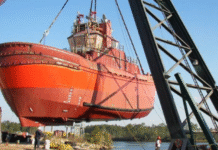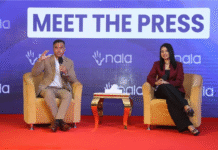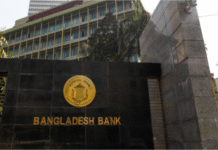
For one and a half years, Premier Cement has repeatedly pushed back its plan to start the commercial production at a newly built manufacturing unit in Chattogram.
The facility with a 270-tonne hourly production capacity was ready to take off in March 2020. But Premier Cement had to halt the inauguration after the coronavirus hit the country.
The cement maker moved the opening of the factory to November. However, it could not do so. Its plan to roll out the unit in March this year also did not materialise because of the second wave of infections.
Premier Cement had planned to start the production in June. Accordingly, it hired technicians from China and Germany. However, six technicians tested positive for coronavirus, forcing the manufacturer to push back the inauguration again.
The delay means sales opportunity losses and pressure to pay back bank loans even though there is no revenue from the new project. In addition, the project cost has risen by 20 per cent, the company says.
“It is a harsh reality, and we have to accept this,” said Mohammed Amirul Haque, managing director of Premier Cement.
The unit is one of the two plants that Premier Cement has built by investing Tk 1,300 crore in order to grab a greater share of the fast-growing cement market in Bangladesh.
Demand for cement has gone up, driven by consumption by public and private construction and exports, particularly to the northeastern states of India.
Premier Cement’s second unit in Narayanganj, which has a capacity of producing 460 tonnes of the vital construction material per hour, also faces delay. It is yet to get any gas and power connections.
Likewise, the investment of TK Group, Meghna Group of Industries (MGI), Nitol Niloy Group, Asian Paints, McDonald Steel, Nippon Steel of Japan, and many other firms is stuck as their almost ready factories cannot go into operation because of the pandemic.
Yet, the burden of loans and other operational expenses is growing, and the prospect of returns from the new investment is delayed.
This happens when policy-makers are trying to attract investors to the country, which has been suffering from sluggish private investment.
Private investment fell to its lowest level in 14 years in the last fiscal year owing to the lingering uncertainty caused by the pandemic and continuing structural weaknesses.
Entrepreneurs say many have kept their investment plans on hold and are waiting for things to return to normalcy. But there is no sign that the pandemic is petering out.
The companies that started the construction of projects before the pandemic have fallen into difficulty. TK Group is one of them.
The conglomerate has not been able to start the commercial operation of two of its factories — a PVC plant and a blue plant — at Meghnaghat in Narayanganj due to the impact of the pandemic, said Md Shafiul Ather Taslim, director for finance and operations of TK Group.
The group set up all machinery, and the factories were ready for commercial production in June last year. It also hired 600 workers.
“Our foreign technicians could not come to Bangladesh to help start the production,” he said.
Tk Group invested Tk 150 crore to establish the factories. Bank finance accounts for around 60 per cent of the total cost.
“We got six months in the grace period for the loan. The grace period is already over, and we are paying the instalment,” Taslim said.
The group spends around Tk 15 lakh per month on the factories.
At the biggest economic zone in Bangladesh, Bangabandhu Sheikh Mujib Shilpa Nagar at Mirsarai, Chattogram, three factories are facing the heat of the pandemic, according to officials of the Bangladesh Economic Zones Authority.
One of the factories, Nippon-McDonald Steel, has targeted to commence the commercial production of galvanised and prefabricated steel sheets in September. The equipment has been brought from Japan and China.
“But we are not sure if we could go into production in the stipulated time,” said McDonald Steel Managing Director Sarwar Kamal.
Nippon-McDonald invested about Tk 100 crore for the joint venture to capture the growing market of steel plates in Bangladesh.
Mostafa Kamal, chairman and managing director of MGI, said his company had invested around $600 million to set up five factories to make PVC, noodles and biscuits.
Of the investment, $350 million came as loans from foreign sources.
“The pandemic is causing a delay to the production at the factories. But we are repaying loans,” said the entrepreneur.
Kamal, however, said MGI would begin running the factories as soon as it got the gas connection.
Nitol Niloy Group’s two projects — a passenger car assembling plant in Pabna and a tyre manufacturing factory in Kishoreganj — have been delayed.
“Although it is unavoidable, the investment has been hampered severely, and it has slowed economic growth,” said Abdul Matlub Ahmad, chairman of the group.
Taslim says if foreign experts come to Bangladesh to provide instructions to local technicians to start commercial production, it will allow entrepreneurs to begin the operation of the factories.
Besides, the government might cut the interest rate on loans for the time being to ease pressures stemming from the obligation to pay bank instalments, he said.
Salehuddin Ahmed, a former governor of Bangladesh Bank, said banks might defer instalment payments for a certain period to give relief to investors.


 For all latest news, follow The Daily Star’s Google News channel.
For all latest news, follow The Daily Star’s Google News channel. 







